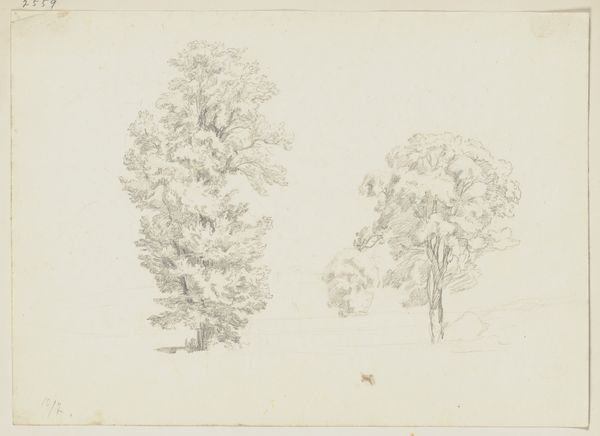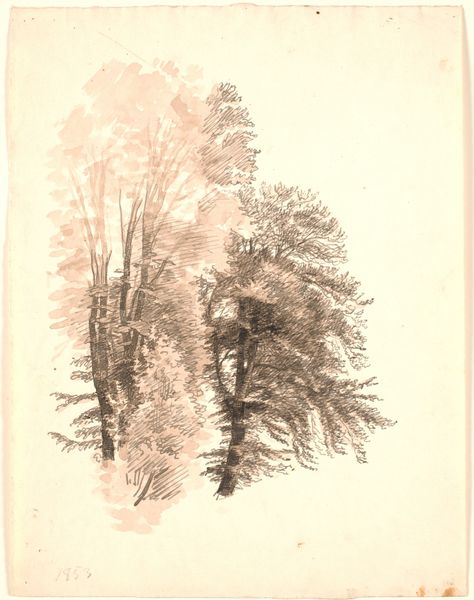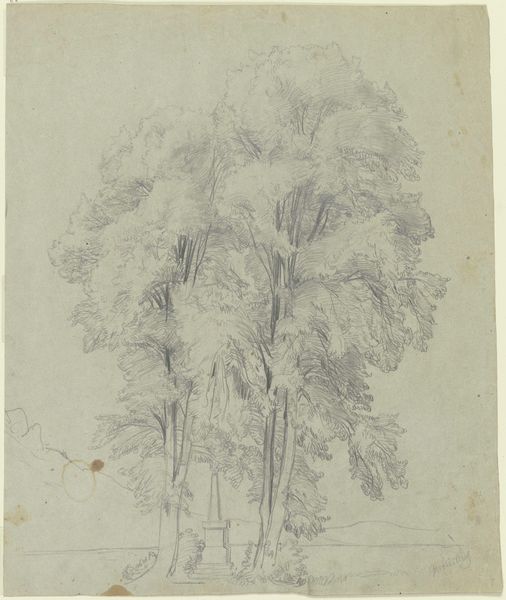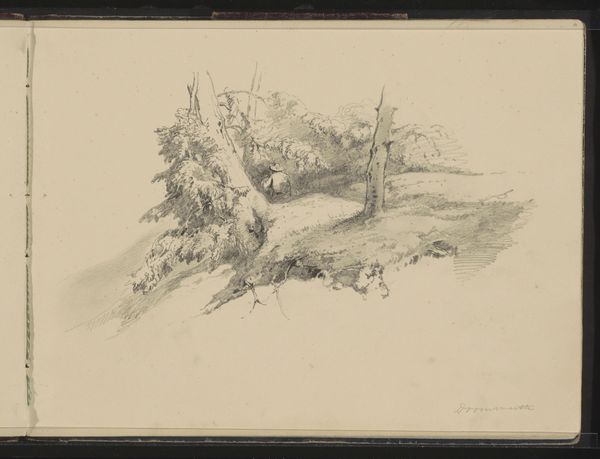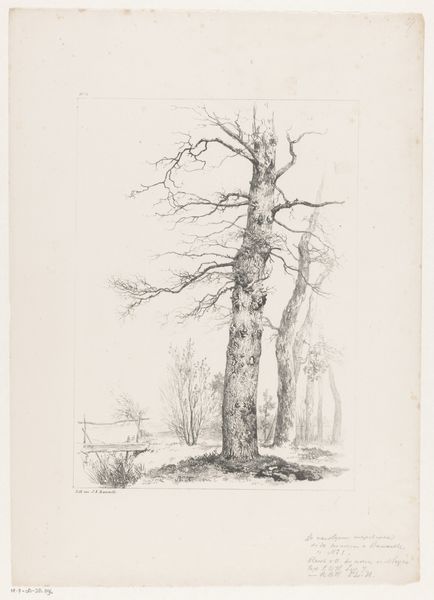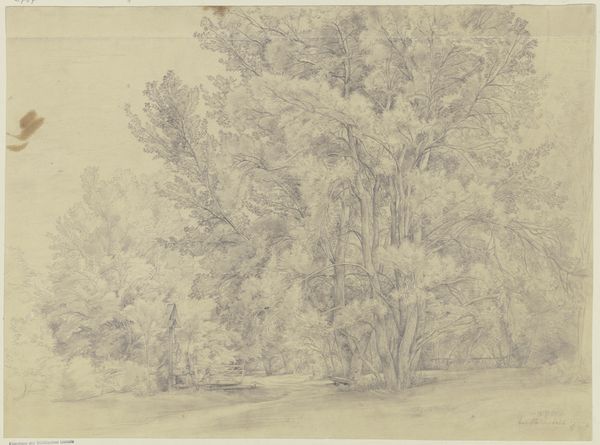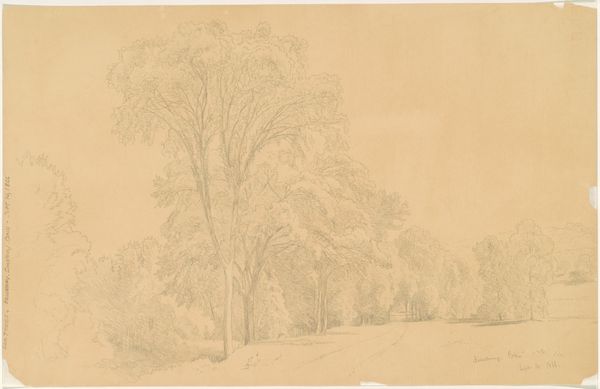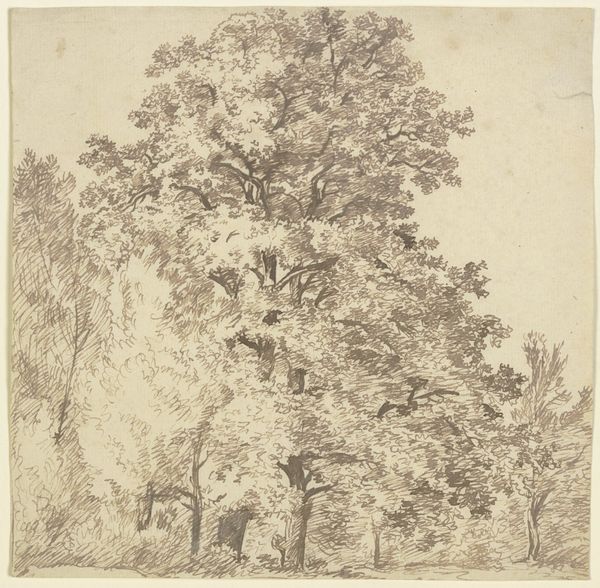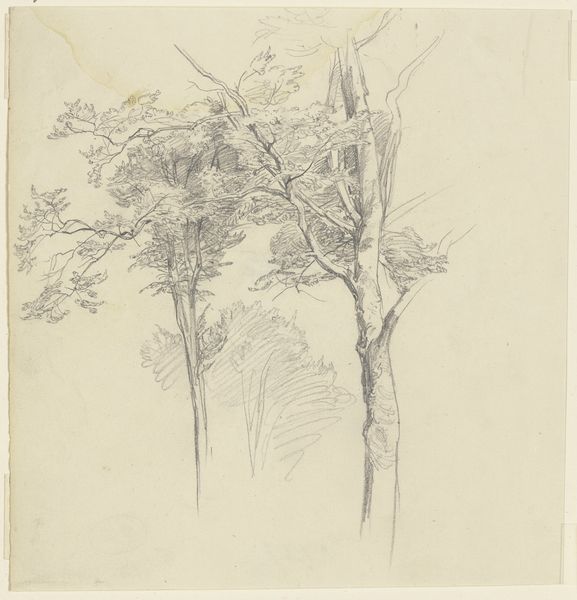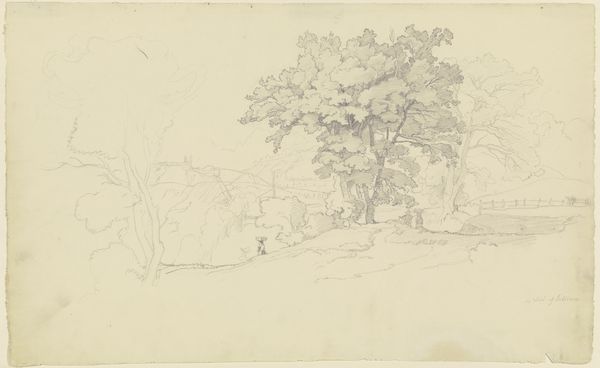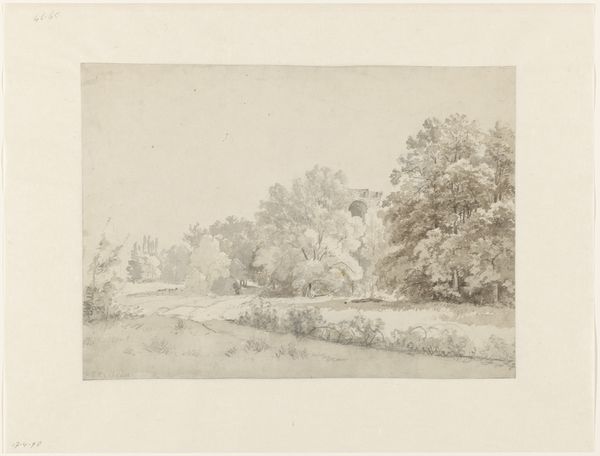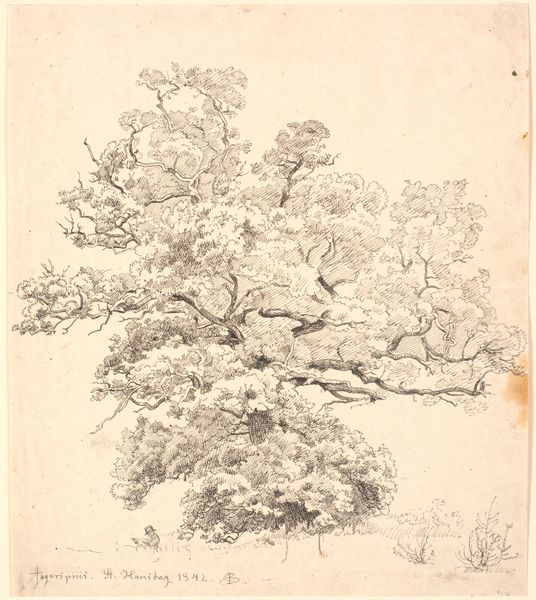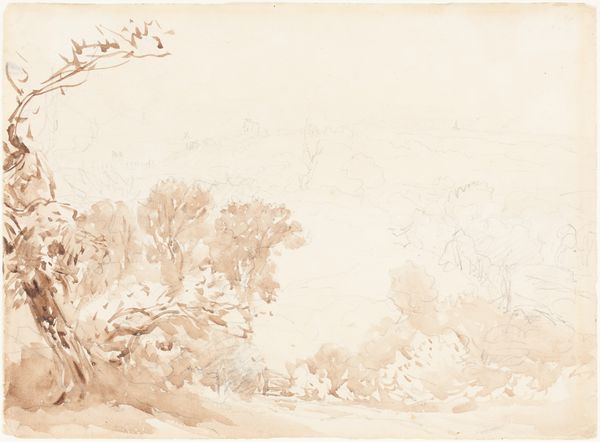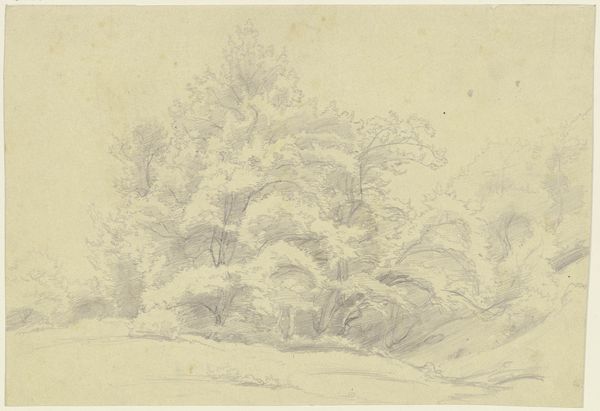
drawing, plein-air, pencil
#
drawing
#
plein-air
#
pencil sketch
#
landscape
#
pencil
#
park
#
pencil work
#
sketchbook art
#
realism
Dimensions: height 278 mm, width 284 mm
Copyright: Rijks Museum: Open Domain
Editor: We're looking at "The Garden of the Palazzo Giulio, Rome," a pencil drawing by Pierre Louis Dubourcq, made sometime between 1825 and 1873. It’s a fairly straightforward landscape, but the density of the trees is quite striking. What do you see in this piece? Curator: Beyond the representational aspect, I see a reflection of 19th-century social structures and access to leisure. Gardens like this were often spaces for privileged classes, embodying ideals of cultivated nature separate from the working world. Consider who *couldn't* access such spaces, and the implications of that exclusion. How does that change how you view what’s depicted? Editor: I hadn't thought about it that way. So the drawing is almost a document of social stratification? Curator: Exactly. And Dubourcq's choice of pencil, a readily available material, contrasts sharply with the opulence it depicts. This tension invites us to consider the artist's own positionality. Was he simply documenting, or perhaps subtly critiquing the status quo? How does this shift your thinking about the piece? Editor: That makes me think about his intentions more. I’d assumed it was just a pleasant landscape drawing. Curator: These spaces often were anything but neutral: carefully designed expressions of power and wealth, consciously excluding the many for the enjoyment of a few. Does that history complicate your appreciation of its aesthetic qualities? Editor: It definitely adds layers to it. I appreciate how this drawing lets us see the politics embedded in what initially seems like a simple, even picturesque scene. Curator: Precisely. Art isn't just about what is visually apparent. It is about unpacking the hidden narratives and power structures woven into the very fabric of society. This seemingly innocuous sketch becomes a portal to discussing much larger themes of access, privilege and perspective.
Comments
No comments
Be the first to comment and join the conversation on the ultimate creative platform.
